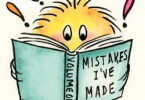IELTS Reading: Chủ đề sinh vật - Phân tích từ vựng (Phần 1)
Hãy cùng diễn đàn đọc bài Reading về chủ đề sinh vật và phân tích các từ vựng mới có trong bài nhé.
Sea monsters are the stuff of legend - lurking not just in the depths of the oceans, but also the darker corners of our minds. What is it that draws us to these creatures? (Phần 1)
"This inhuman place makes human monsters," wrote Stephen King in his novel The Shining. Many academics agree that monsters lurk in the deepest recesses, they prowl through our ancestral minds appearing in the half-light, under the bed - or at the bottom of the sea.
"They don't really exist, but they play a huge role in our mindscapes, in our dreams, stories, nightmares, myths and so on," says Matthias Classen, assistant professor of literature and media at Aarhus University in Denmark, who studies monsters in literature. "Monsters say something about human psychology, not the world."
One Norse legend talks of the Kraken, a deep sea creature that was the curse of fishermen. If sailors found a place with many fish, most likely it was the monster that was driving them to the surface. If it saw the ship it would pluck the hapless sailors from the boat and drag them to a watery grave.
This terrifying legend occupied the mind and pen of the poet Alfred Lord Tennyson too. In his short 1830 poem The Kraken he wrote: "Below the thunders of the upper deep, / Far far beneath in the abysmal sea, / His ancient, dreamless, uninvaded sleep / The Kraken sleepeth."
The deeper we travel into the ocean, the deeper we delve into our own psyche. And when we can go no further - there lurks the Kraken.
Most likely the Kraken is based on a real creature - the giant squid. The huge mollusc takes pride of place as the personification of the terrors of the deep sea. Sailors would have encountered it at the surface, dying, and probably thrashing about. It would have made a weird sight, "about the most alien thing you can imagine," says Edith Widder, CEO at the Ocean Research and Conservation Association.
"It has eight lashing arms and two slashing tentacles growing straight out of its head and it's got serrated suckers that can latch on to the slimiest of prey and it's got a parrot beak that can rip flesh. It's got an eye the size of your head, it's got a jet propulsion system and three hearts that pump blue blood."
[...]
Phân tích từ vựng mới trong bài:
-
inhuman /ɪnˈhjuː.mən/ (adj): vô nhân đạo (extremely cruel)
Example: Prisoners of war were subjected to inhuman and degrading treatment.
-
lurk /lɝːk/ (v): ẩn nấp, trốn (to wait or move in a secret way so that you cannot be seen, especially because you are about to attack someone or do something wrong)
Example: Someone was lurking in the shadows.
-
recess /ˈriː.ses/ (n): chỗ lõm, ngách (a small space in a room, formed by one part of a wall being further back than the parts on each side)
Example: We've put some bookshelves in the alcove.
-
prowl /praʊl/ (v): rình mò (to move around quietly in a place trying not to be seen or heard, such as an animal does when hunting)
Example: There have been reports of a masked man prowling in the neighbourhood.
-
pluck /plʌk/ (v): kéo (to pull something, especially with a sudden movement, in order to remove it)
Example: He plucked the letter from/out of my hand, and ran off with it.
-
hapless /ˈhæp.ləs/ (adj): không may (unlucky and usually unhappy)
Example: Many children are hapless victims of this war.
-
abysmal /əˈbɪz.məl/ (adj): đáy biển (very deep)
Example: titanic heights and abysmal depths
-
delve /delv/ (v): đào sâu (to search, especially as if by digging, in order to find a thing or information)
Example: She delved into her pocket to find some change.
-
mollusc /ˈmɑː.ləsk/ (n): nhuyễn thể (any animal that has a soft body, no spine, and is often covered with a shell. Many molluscs live in water)
Example: Oysters are molluscs, as are snails and cuttlefish.
-
lashing /ˈlæʃ.ɪŋ/ (n): đòn roi (the punishment of being hit with a whip)
Example: He was sentenced to receive a lashing.
-
tentacle /ˈten.t̬ə.kəl/ (n): xúc tu (one of the long, thin parts like arms of some sea animals, used for feeling and holding things, catching food, or moving)
Example: Squids have a pair of tentacles.
-
serrated /səˈreɪ.t̬ɪd/ (adj): răng cưa (having a row of sharp points along the edge)
Example: You really need a knife with a serrated edge for cutting bread.
-
flesh /fleʃ/ (n): thịt (the soft part of the body of a person or animal that is between the skin and the bones, or the soft inside part of a fruit or vegetable)
Example: Vegetarians don't eat animal flesh (= meat).
-
propulsion /prəˈpʌl.ʃən/ (n): sức đẩy, lực đẩy (a force that pushes something forward)
Example: a propulsion system











Bình luận